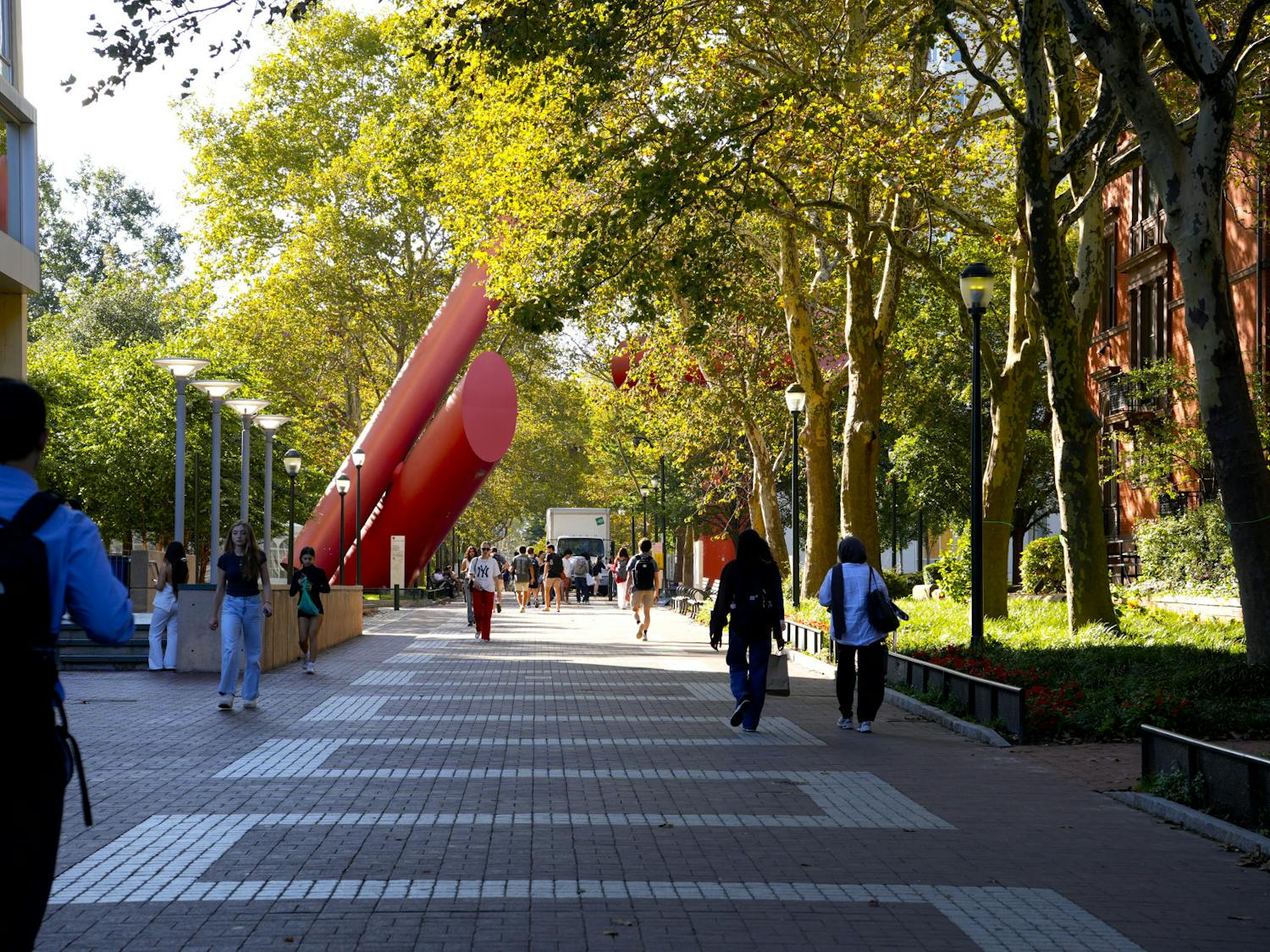From Ronald Kim's, "The Wretched of the Earth," Fall '00 From Ronald Kim's, "The Wretched of the Earth," Fall '00The birthday of Martin Luther King marks a familiar annual American ritual of remembrance and celebration. Millions of citizens of all racial and ethnic origins are encouraged to reflect upon the amazing achievements of King and the civil rights movement, and more broadly, what it means to be an American. Instead I'm going to talk about the kind of places where King's dream never comes close to being dreamt. A couple of months ago I met an old classmate who is now working on the Penn campus. I hadn't talked to him in almost two years and was surprised to find out that he was also teaching at a middle school in North Philadelphia. Though I didn't grow up in a neighborhood like the one around my friend's school, I thought I had a pretty good idea of what conditions there were like. Man, was I wrong. Kids coming to school high -- if at all -- or selling drugs you've never even heard of in the bathrooms and hallways. Twelve-year-old girls giving birth in the cafeteria. A majority of students can't even read at a fourth-grade level. Over three quarters of black males disappear from the Philadelphia public school system between the ages of 10 and 18, many literally lost from the records. One can debate endlessly who is to blame for allowing conditions to deteriorate to the point of desperate inhumanity. But there is no question that these children grow up on blocks where the only functioning traces of social organization are liquor stores and drug-dealing operations. This is probably the worst imaginable environment for fostering self-esteem, hope or academic performance. Imagine walking down the block to a school that hasn't seen repairs, new lab equipment or (in the worst cases) new books in decades, and seeing a banner proclaiming that "The American Dream is Alive and Well at 'Hood High." And for MLK's birthday, someone in your class is asked to read that famous "I have a dream" speech all over again. And nobody dares discuss the true meaning behind those words, to ask whether that dream will be realized anytime soon -- not to mention the struggle against segregation, in a school whose students' faces make a mockery of Brown v. Board of Education. As award-winning educator and writer Jonathan Kozol points out in the book Savage Inequalities, such empty slogans cause even more damage to children who desperately need real answers and hope, not worthless platitudes and political soundbites. Rarely in a suburban high school would you see a banner proclaiming the survival of the American Dream. It would seem not only unnecessary, but almost laughable. Why broadcast the obvious? Consider on the other hand what happened to Kozol in the 1960s, when he dared to have students in a poor grade school in Boston read Langston Hughes' almost equally famous words about "a dream deferred." He was promptly relieved of his teaching position for including "inappropriate material." Once again, Kozol points out, suburban schools place no such restrictions on their curricula. One poem by a great writer of the Harlem Renaissance poses no threat to the minds of young, well-off, mostly white children, who are more likely to reflect on how they might not grow up to be an astronaut than on the contradiction of being poor in the richest nation on earth. To be sure, as author Walter Mosley argues in his most recent book, this is beginning to change now that more and more white Americans are losing control of their lives and finding themselves victims of HMOs, corporate downsizing, globalization and other consequences of The System. But the racial and economic gap isn't going away anytime soon, not as long as we refuse to face the tragedy of inner-city neighborhoods. Children don't know much about politics or the workings of the outside world, but they are often more keenly observant of hypocrisy than adults. For the children of North Philadelphia and many other urban hellholes around the country, King's birthday -- meant to be a celebration of all the moral and social progress that has been made against racial oppression and inequality -- has become yet another painful reminder of a world beyond their reach. To those children, and to those who suspect that I have done a disservice to the name of the great Southern preacher, consider this. In 1964, a leader of a very different black civil rights movement angrily declared, "I don't see any American Dream. I see an American nightmare."
The Daily Pennsylvanian is an independent, student-run newspaper. Please consider making a donation to support the coverage that shapes the University. Your generosity ensures a future of strong journalism at Penn.
DonateMore Like This
Penn Museum hosts 45th annual Lunar New Year celebration
By
Candice Felderer
·
20 hours ago
Wharton to face trial over $37 million contract dispute
By
Hailey Hilsabeck
·
20 hours ago








